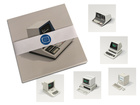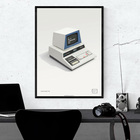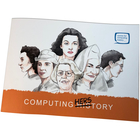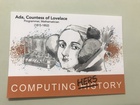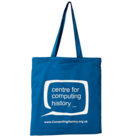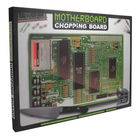
| Home > LEO Computers > Lyons Electronic Office (LEO) Archive > CMLEO/EL - Ernest Lenaerts Collection > Lenaerts Corresponden ... nchester photocopies) > 62816 Lenaerts-Cadby Hall correspondence > 62890 Lenaerts report ... part 2 - Jan-Mar 1948 |
62890 Lenaerts reporting back from Cambridge, part 2 - Jan-Mar 1948
| Home > LEO Computers > Lyons Electronic Office (LEO) Archive > CMLEO/EL - Ernest Lenaerts Collection > Lenaerts Corresponden ... nchester photocopies) > 62816 Lenaerts-Cadby Hall correspondence > 62890 Lenaerts report ... part 2 - Jan-Mar 1948 |
|
Second part of a file of photocopies of correspondence between Ernest Lenaerts and his managers at Lyons - John Simmons, W.J. Edwards and T.R. Thompson, during Lenaerts' secondment to the Cambridge University Mathematical Laboratory, working as part of the EDSAC team under Maurice Wilkes. Many of Lenaerts' original letters were written enclosing reports on the progress of the EDSAC team, but photocopies of the reports themselves were not included in this file of photocopies. Presumably the original reports are included in the archive copy held at Manchester, ref. GB 133 EHL/2 EDSAC. Comprises: Page numbers in red were added by Peter Bird.
Research Comments: Simmons' 06/01/1948 letter mentions John von Neumann, who had published his seminal report on the EDVAC machine just three years prior. Several of the letters highlight how early in the history of computing both EDSAC and LEO were, as evidenced in the fact that much of the terminology used to describe parts of the machines were not yet standardised, for example the letters include a discussion of whether to refer to the mercury delay lines as 'supersonic delay lines' or 'acoustic delay lines' (Lenaerts letter 13/01/1948). Indeed, it would be a further 16 months until EDSAC is built, successfully runs it first program and gives the Lyons board of directors the confidence to begin construction of LEO I. EDVAC didn't enter into operation for another 3 years. The 13th January 1948 Lenaerts' letter refers to "pioneering work by Dr. Wilkes, Mr. Renwick and Mr. Bennett" at Cambridge, which was being undertaken while Lenaerts and others work on the delay lines. Lenaerts' letter of 16/01/1948 then reports that the first of EDSAC's delay line batteries has been completed and is working. His letter of 30/01/1948, however, suggests that the sensitivity of mercury to temperature fluctuation is a considerable problem with the delay lines, necessitating them to be housed in "airtight boxes" (later referred to as 'coffins',) kept at a constant temperature. In time though, Lenaerts reports that the problem is inherent in the mercury itself, which must be rectified by emptying all of the tubes and sending the mercury to be double-distilled (Lenaerts 26/02/1948). The EDSAC team is finding its way with these new technologies. John Simmons' response to Lenaerts' report is to point out, quite astutely, that "it is one thing to design and another thing to execute" (Simmons 01/03/1948). One of the letters (14/01/1948) refers to shortages of stationery materials, which continued in the UK for several years after World War II. Another (Lenaerts 22./01/1948) refers to the use Cambridge are making of surplus government valves, condensors and resistors, the supply of which is likely to dry up. Lenaerts advises that Lyons purchase some surplus stock before supply reduces and prices rise, though in the event Lyons choose not to do so. The 'payroll job' referred to in several of the letters is known, internally within Lyons, as L1. The original intention was that this should be the first program LEO worked on, however that plan was eventually shelved and L3 (Bakeries Valuations) was worked on first. Derek Hemy had provided a draft payroll program to Cambridge to try on EDSAC once it was operational, but in the event the program did not run successfully. It is interesting, and entirely typical of Lyons, that the company was working on programming calculations to improve Lyons work before EDSAC had even been finished. This is indicative not just of how much LEO was part of the Lyons ethos of improving their office processes, but also of the fact that programming as a discipline and process was very much in its infancy. In addition, how it could be done impacted greatly on the physical nature of the machine being constructed. There was little choice but to work on construction (of EDSAC then LEO) and programming simultaneously. Lenaerts' letter of 16/02/1948 reports that Dr Wilkes has decided to replace the adder unit in EDSAC with two half adders. The same letter reports that Lenaerts has been testing some of EDSAC's control units for the first time. He reports that "Considering that most of these circuits have not existed before except on paper they work amazingly well.". Lenaerts' letter of 03/03/1948 reports that the EDSAC team are now working on the input mechanism. He has been amending the half adder and when finished will work on three "high speed relay" units that will function as the "link between the tape reading machine and the computor itself". He continues: "By the time these are finished and working the EDSAC should be able to do more than add 1s!". (LM) Date : 6th January 1948 to 19th March 1948Creator : Lenaerts, Ernest Physical Description : 38 pages, paper; manuscript and typescript Provenance : Archive References : CMLEO/EL/CW/1/3 , CCH OE 778.028-065 , DCMLEO20210112028-065 This exhibit has a reference ID of CH62890. Please quote this reference ID in any communication with the Centre for Computing History. |
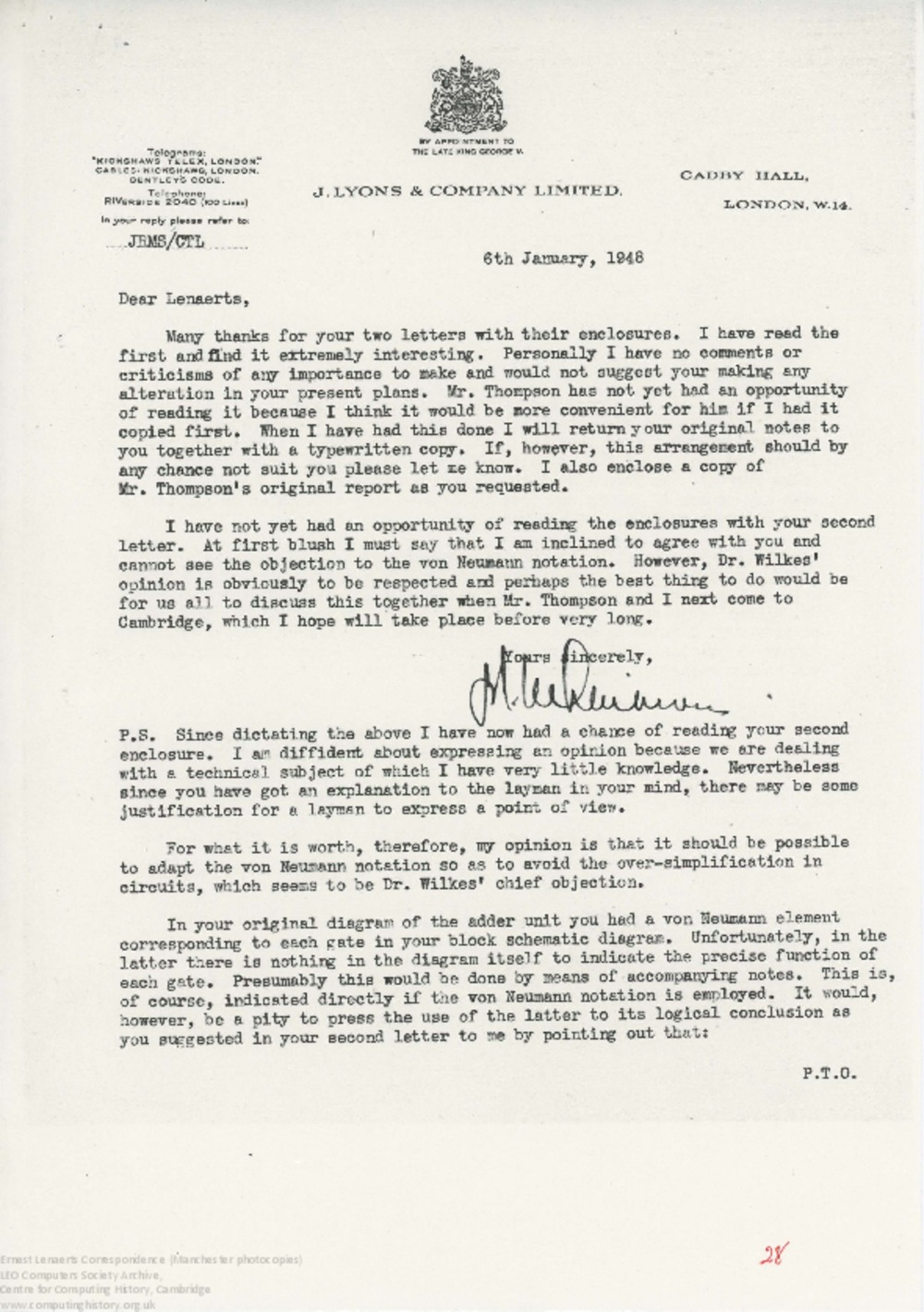 This document has been scanned and is available to view online.
Copyright Estate of Ernest Lenaerts and Lyons copyright File Size: 11.51 MB
|

